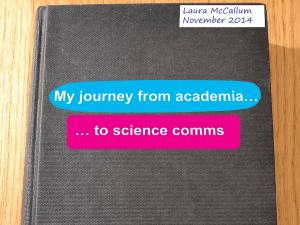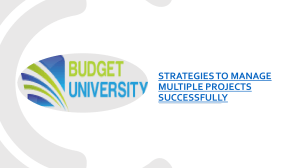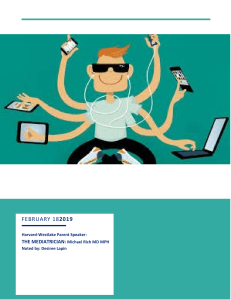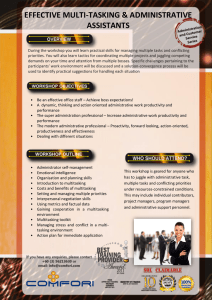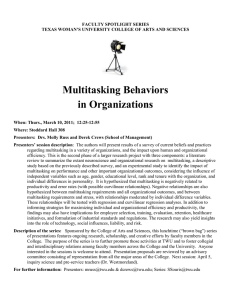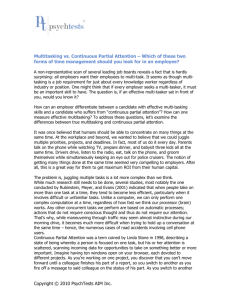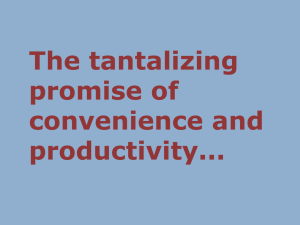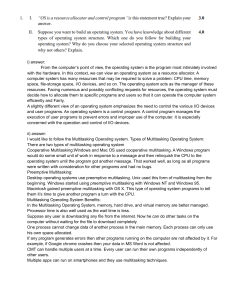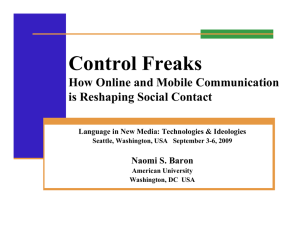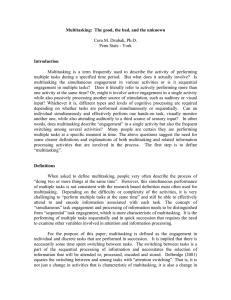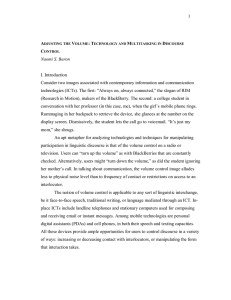Strictly Classified I’m Only One Person! Multitasking at Work
advertisement
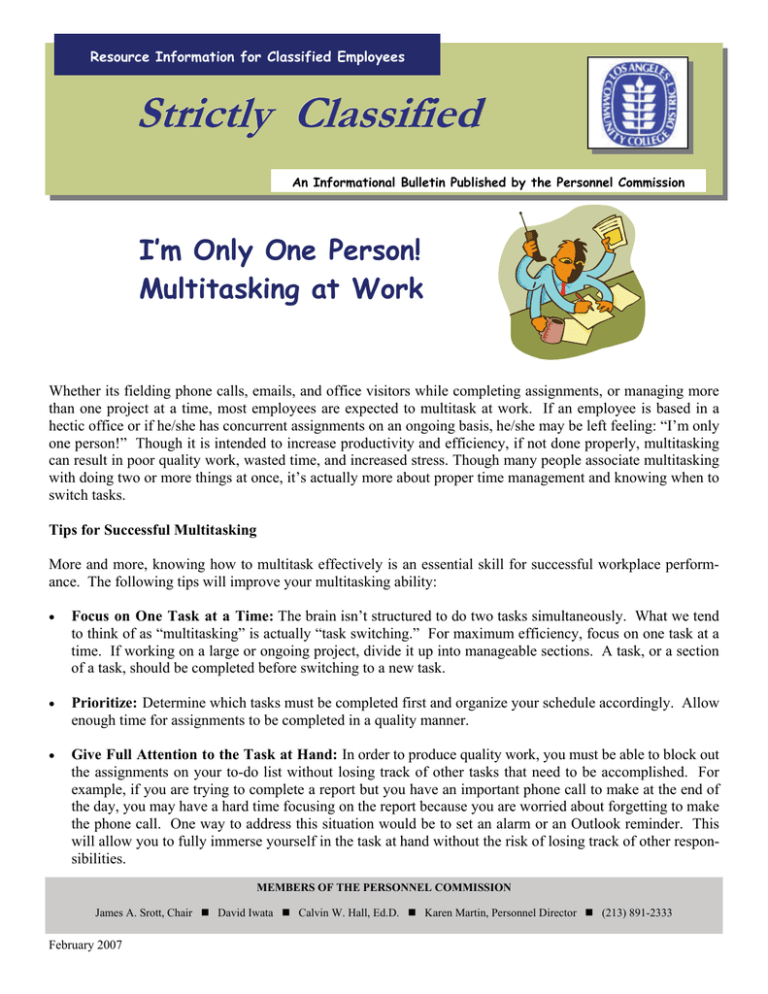
Resource Information for Classified Employees Strictly Classified An Informational Bulletin Published by the Personnel Commission I’m Only One Person! Multitasking at Work Whether its fielding phone calls, emails, and office visitors while completing assignments, or managing more than one project at a time, most employees are expected to multitask at work. If an employee is based in a hectic office or if he/she has concurrent assignments on an ongoing basis, he/she may be left feeling: “I’m only one person!” Though it is intended to increase productivity and efficiency, if not done properly, multitasking can result in poor quality work, wasted time, and increased stress. Though many people associate multitasking with doing two or more things at once, it’s actually more about proper time management and knowing when to switch tasks. Tips for Successful Multitasking More and more, knowing how to multitask effectively is an essential skill for successful workplace performance. The following tips will improve your multitasking ability: • Focus on One Task at a Time: The brain isn’t structured to do two tasks simultaneously. What we tend to think of as “multitasking” is actually “task switching.” For maximum efficiency, focus on one task at a time. If working on a large or ongoing project, divide it up into manageable sections. A task, or a section of a task, should be completed before switching to a new task. • Prioritize: Determine which tasks must be completed first and organize your schedule accordingly. Allow enough time for assignments to be completed in a quality manner. • Give Full Attention to the Task at Hand: In order to produce quality work, you must be able to block out the assignments on your to-do list without losing track of other tasks that need to be accomplished. For example, if you are trying to complete a report but you have an important phone call to make at the end of the day, you may have a hard time focusing on the report because you are worried about forgetting to make the phone call. One way to address this situation would be to set an alarm or an Outlook reminder. This will allow you to fully immerse yourself in the task at hand without the risk of losing track of other responsibilities. MEMBERS OF THE PERSONNEL COMMISSION James A. Srott, Chair February 2007 David Iwata Calvin W. Hall, Ed.D. Karen Martin, Personnel Director (213) 891-2333 • Make a Schedule: Create a timeline for tasks to be accomplished. Emails and phone calls can be very distracting. If possible, block out specific times to answer emails and return phone calls. • Establish a Routine: Tasks become more manageable when they are part of a routine. Establish a method and schedule for approaching your tasks. • Use Technology to Your Advantage: Recent advances in technology can greatly assist employees with maximizing efficiency. For example, cell phones and computers can be programmed with reminders. Additionally, telephone headsets can be used so that you can step away from your desk to complete tasks without missing important phone calls. Effective multitasking isn’t about harnessing super-human powers to complete several tasks at one time. Rather, it is about proper planning through prioritizing and organization. Although managing several assignments, as well as handling inevitable interruptions can be overwhelming, ultimately developing strong multitasking skills will alleviate stress and increase productivity.
